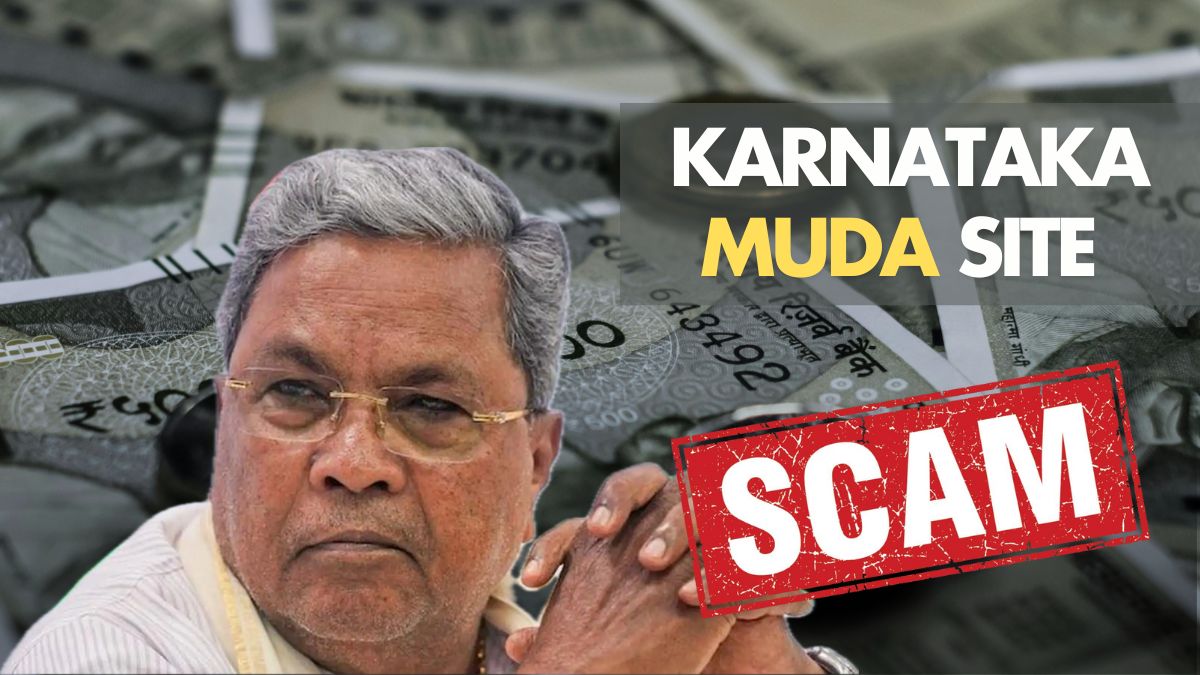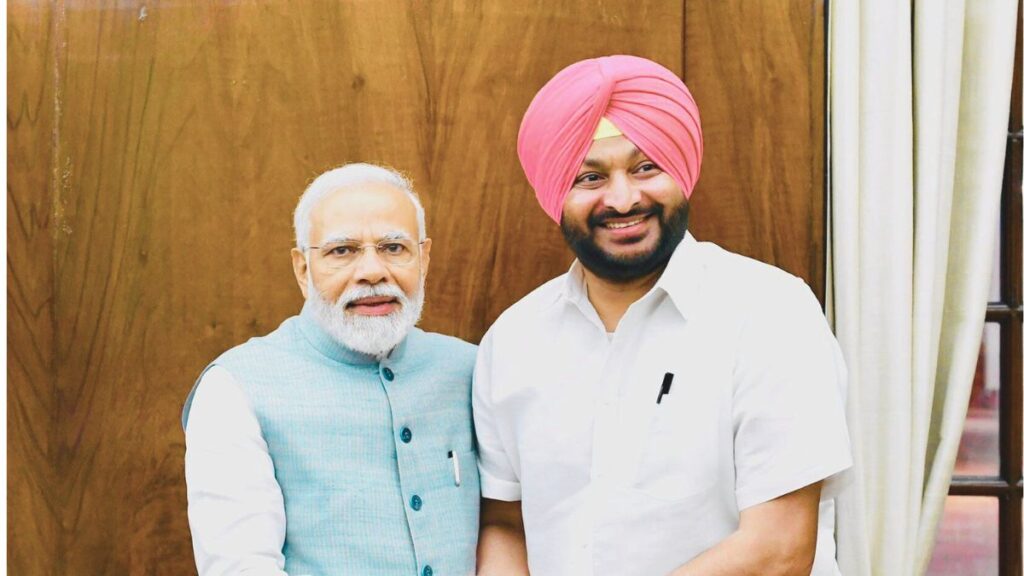Karnataka MUDA Site Allotment Scam Controversy & Political Fallout
In a recent turn of events, Karnataka’s political landscape has been rattled by a controversy involving the alleged (Mysuru Urban Development Authority) MUDA site allotment scam. Governor Thaawarchand Gehlot’s decision to grant sanction for the prosecution of Chief Minister Siddaramaiah has stirred intense debates, with accusations of constitutional violations and political vendettas coming to the fore. This comprehensive analysis delves into the multifaceted dimensions of the controversy, exploring the legal, political, and constitutional implications.
The MUDA site allotment scam has become a focal point of political tension in Karnataka. Governor Gehlot’s decision to permit the prosecution of Chief Minister Siddaramaiah, based on allegations of irregularities, has been met with fierce resistance from the state’s ruling party. The move has not only sparked a political uproar but also raised critical questions about the constitutional powers and responsibilities of the Governor. This article aims to provide an in-depth understanding of the controversy, examining the perspectives of various stakeholders and the potential impact on Karnataka’s political fabric.
The controversy originated with a petition filed by advocate-activist T J Abraham, who alleged that there were significant irregularities in the allotment of sites by MUDA. According to Abraham, these irregularities pointed to a misuse of authority and corruption. The Governor’s decision to sanction Siddaramaiah’s prosecution was based on this petition, despite the state cabinet’s earlier recommendation to withdraw the show-cause notice issued to Siddaramaiah and to reject the petition seeking prosecution sanction.
Siddaramaiah has vehemently opposed the Governor’s decision, labeling it as “anti-Constitutional” and asserting that it will be challenged in court. He has emphasized that the decision is not only contrary to the Constitution but also against the law. This stance has been supported by the entire Cabinet, party high command, and all Congress MLAs, MLCs, and MPs.
The Governor’s decision has elicited strong reactions from various political quarters. Deputy Chief Minister DK Shivakumar condemned the decision, terming it an “overreach” and asserting that the law and democratic processes would protect the government. Shivakumar has vowed to inform the public about the developments and take all legal steps available under the Constitution to challenge the decision.
On the other hand, the opposition Bharatiya Janata Party (BJP) has seized the opportunity to demand Siddaramaiah’s resignation. Karnataka BJP president BY Vijayendra has argued that the gravity of the allegations, combined with what he calls substantial evidence, necessitates Siddaramaiah stepping down to ensure a transparent and unbiased investigation. According to Vijayendra, Siddaramaiah’s resignation is essential to maintain the dignity of the Chief Minister’s office and to ensure justice is served.
The MUDA site allotment scam controversy raises significant constitutional and legal questions. The primary issue revolves around the Governor’s powers and whether his decision to sanction Siddaramaiah’s prosecution constitutes a misuse of the constitutional office. The state cabinet has described the Governor’s actions as a “gross misuse of the Constitutional Office,” highlighting the tension between the executive and the constitutional head of the state.
Legal experts are divided on the matter. Some argue that the Governor has acted within his rights, as he is empowered to grant or deny sanction for prosecution under certain circumstances. However, others contend that the Governor’s decision was politically motivated and that it undermines the principles of federalism and the separation of powers.
As the controversy unfolds, the judiciary is expected to play a crucial role in resolving the legal disputes. Siddaramaiah has announced his intention to challenge the Governor’s decision in court, which will likely result in a judicial review of the Governor’s actions. The outcome of this legal battle will have far-reaching implications, not only for Siddaramaiah and the Karnataka government but also for the broader understanding of the Governor’s constitutional powers.
The judiciary’s intervention will be critical in determining whether the Governor’s decision was legally sound and constitutionally valid. It will also set a precedent for future cases involving the prosecution of public officials and the role of the Governor in such matters.
The MUDA site allotment scam has garnered extensive media coverage, with various news outlets providing differing perspectives on the controversy. Public perception is deeply divided, with supporters of Siddaramaiah viewing the Governor’s decision as a politically motivated attack, while opponents believe it is a necessary step to ensure accountability and transparency.
Media coverage has played a significant role in shaping public opinion, highlighting the importance of transparent and unbiased reporting. The ongoing developments in the case are likely to continue dominating headlines, influencing public discourse and political strategies.
The MUDA site allotment scam controversy is poised to have long-lasting political ramifications in Karnataka. The outcome of the legal battles, the response of the electorate, and the strategies adopted by various political parties will all contribute to shaping the state’s political landscape.
If Siddaramaiah is ultimately cleared of the allegations, it could strengthen his political position and galvanize support for the Congress party. Conversely, if the prosecution proceeds and results in a conviction, it could significantly weaken the party’s standing and bolster the BJP’s position in the state.
The MUDA site allotment scam controversy in Karnataka underscores the complex interplay between law, politics, and constitutional principles. As the state grapples with the implications of the Governor’s decision to prosecute Chief Minister Siddaramaiah, the unfolding events will continue to shape Karnataka’s political landscape. The judiciary’s intervention, public perception, and political strategies will all play pivotal roles in determining the future course of this high-stakes controversy.
What are the main allegations in the MUDA site allotment scam?
The main allegations involve irregularities in the allotment of sites by the Mysuru Urban Development Authority (MUDA), suggesting a misuse of authority and potential corruption.
Why did Governor Gehlot grant sanction for Siddaramaiah’s prosecution?
Governor Gehlot granted the sanction based on a petition filed by advocate-activist T J Abraham, despite the state cabinet’s recommendation to withdraw the show-cause notice and reject the petition.
What is Siddaramaiah’s response to the Governor’s decision?
Siddaramaiah has labeled the Governor’s decision as “anti-Constitutional” and has announced plans to challenge it in court, arguing that it is contrary to the Constitution and the law.
How has the BJP responded to the controversy?
The BJP has demanded Siddaramaiah’s resignation to allow for a transparent and unbiased investigation, citing the gravity of the allegations and what they claim is substantial evidence.
What are the constitutional implications of the Governor’s decision?
The controversy raises questions about the Governor’s powers and whether his decision constitutes a misuse of the constitutional office, highlighting the tension between the executive and the constitutional head of the state.
What role will the judiciary play in resolving the controversy?
The judiciary is expected to play a crucial role in reviewing the Governor’s decision and determining its legality and constitutional validity, setting a precedent for future cases involving the prosecution of public officials.
Stay connected with NH Punjab on social media. Follow us on Facebook, Twitter/X, and Instagram for the latest news updates, behind-the-scenes content, and more. Engage with us online and be a part of our growing community.
Sign up for our newsletter to get the latest news delivered straight to your inbox. Follow us on social media for real-time updates and engaging content.



